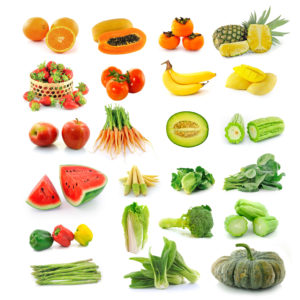Carrots are high in alpha-carotene – most supplements are not.

If you like pumpkin pie we have good news for you … because according to this study, alpha-carotene—the carotenoid found in orange and yellow fruits and vegetables—might help you to live longer. (This doesn’t include the dollop of whipped cream on your pie!)
Both beta-carotene and alpha-carotene are converted to vitamin A inside your body. This study points to alpha-carotene as playing a more important role in protecting cellular DNA from free radical damage.
A research team at the U.S. Centers for Disease Control and Prevention followed more than 15,000 adults who participated in the Third Health and Nutrition Examination Survey, estimating the direct relationship between concentrations of serum carotene and death. The researchers compared the carotene concentration with death records and found that the individuals with the highest levels of alpha-carotene were more likely to be alive in 2006, 14 years after they began the study, regardless of their lifestyle, demographics or other health risk factors.The team also linked higher blood alpha-carotene levels to a lower risk of dying from cardiovascular disease or cancer, the two top killers in the U.S.
The participants had a medical exam that included a blood test, between 1988 and 1994. By the time the study ended in 2006, more than 3,000 people had died. The researchers discovered that compared with those who had blood alpha-carotene levels between 0 and 1 micrograms per deciliter (mcg/dL), those who had levels in the range of 2 to 3 mcg/dL had a 23% lower risk of death from all causes. Risk of death for those with alpha-carotene blood levels in the range between 4 to 5 mcg/dL, between 6 and 8 mcg/dL, and 9 mcg/dL or above dropped 27%, 34% and 39%, respectively, versus those in the 0 to 1 mcg/dL range.
How does this study pertain to you?
Eating at least 5 to 7 fruits and vegetables a day that contain carotenoids is a great way to make sure you’re getting enough alpha- and beta-carotene. Those foods include: carrots, pumpkin, sweet potatoes, winter squash, mango, cantaloupe, apricots, peaches, broccoli and dark, green leafy vegetables, such as kale, spinach, collard greens, and Brussels sprouts. These foods also contain the carotenoids lutein and zeaxanthin, which are vital to eye health.
Unfortunately, most of us don’t eat that many fruits and vegetables every day. Additionally, many of us don’t get the variety we need everyday to ensure that we are getting a mix of natural carotenoids. An overall protective diet contains significant amounts of all the carotenoids, not just beta-carotene.
Nutritional supplementation
Many nutritional supplements containing beta-carotene contain the synthetic form or a natural form lacking in alpha carotene. In order to get the full protective benefits of carotenoids— especially if you don’t eat a variety of fruits and vegetables every day—take a supplement that contains a mixture of natural carotenoids, including alpha- and beta carotene, lutein, zeaxanthin and lycopene from natural sources.
Caroteniods Are Better Absorbed From Supplements Than From Food!
